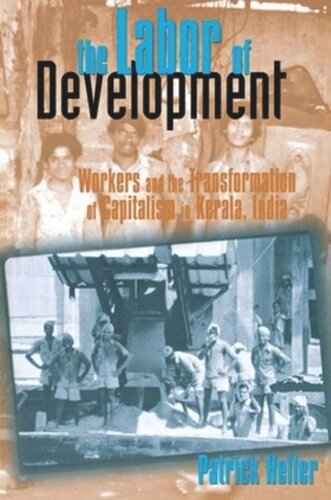

Most ebook files are in PDF format, so you can easily read them using various software such as Foxit Reader or directly on the Google Chrome browser.
Some ebook files are released by publishers in other formats such as .awz, .mobi, .epub, .fb2, etc. You may need to install specific software to read these formats on mobile/PC, such as Calibre.
Please read the tutorial at this link: https://ebookbell.com/faq
We offer FREE conversion to the popular formats you request; however, this may take some time. Therefore, right after payment, please email us, and we will try to provide the service as quickly as possible.
For some exceptional file formats or broken links (if any), please refrain from opening any disputes. Instead, email us first, and we will try to assist within a maximum of 6 hours.
EbookBell Team

4.1
100 reviewsThe state of Kerala in southern India is notable for the ways in which lower-class mobilization and state intervention have combined to create one of the most successful cases of social and redistributive development in the Third World. In contrast to predictions that labor militancy in developing countries threatens to overload fledgling democratic institutions and derail economic growth, The Labor of Development shows that the political and economic inclusion of industrial and agricultural workers in Kerala set the stage for a democratically negotiated capitalist transformation.When compared to the other Indian states, Kerala's departure from the national pattern is tied to its history of social movements and highlights the significance of understanding sub-national patterns of democratic consolidation and state building. The case of Kerala provides important theoretical insights into the circumstances under which the expansion of political and social citizenship can become the basis for managing economic change. Using examples from agriculture, industry, and the informal sector, Patrick Heller examines the institutional and political dynamics through which the demands of organized labor and the imperatives of capitalist growth have evolved from a period of open conflict and stagnation to one of class compromise. He also demonstrates that the Kerala model has broad ramifications for understanding the relationship between substantive democracy and market economies in low-income countries.